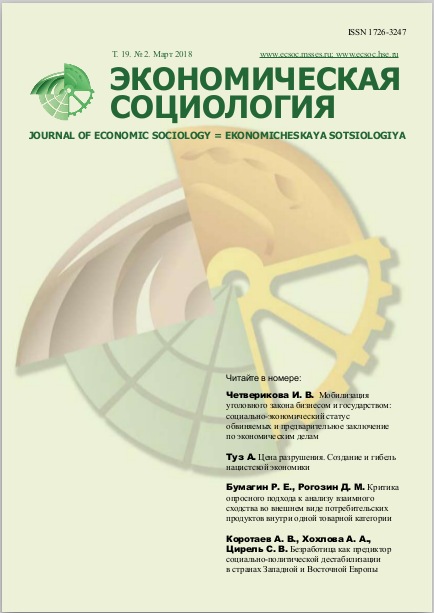“It Is Enough!”: The Life and Adventures of the Post-Soviet Working Class Seen by Through the Eyes of a Foreign Ethnographer
Book Review: Morris J. (2016) Everyday Post-Socialism. Working-Class Communities in the Russian Margins . London: Palgrave Macmillan. 292 p
Abstract
This is a review of the new book by ethnographer Jeremy Morris entitled Everyday Post-Socialism: Working-Class Communities in the Russian Margins. The book is based on the ethnographic study of the life and work of the population of the provincial industrial Russian town of Isluchino in the period from 2009–2012. Characteristics of the phenomenon of Soviet and post-Soviet single-industry towns are given. These settlements have many social problems now because of the deindustrialization period during the 1990s. The author analyses the social positions of Isluchino’s inhabitants and describes their families, labors, and biographical traces. This study shows the importance of the transition from the Soviet to the post-Soviet period for the Russian working class. Workers lost their respected status and stable employment during the 1990s and moved to the survival mode, and the elderly and younger generations came to have misunderstandings about the perceptions of their positions in the social and occupational structure. Morris speaks of the women’s role in working class families, describing how their function is to care for and maintain family integrity. The author pays special attention to labor relations at local enterprises and demonstrates the transformation of local businesses into corporate cultures. Rigid managerial models of the business administration changed former soft paternalism in the management of Soviet enterprises. The book also contains a methodological reflection of Morris on his professional role as an ethnographer. This book is of particular interest to sociologists, anthropologists, ethnographers, and experts in gender studies and labor relations













